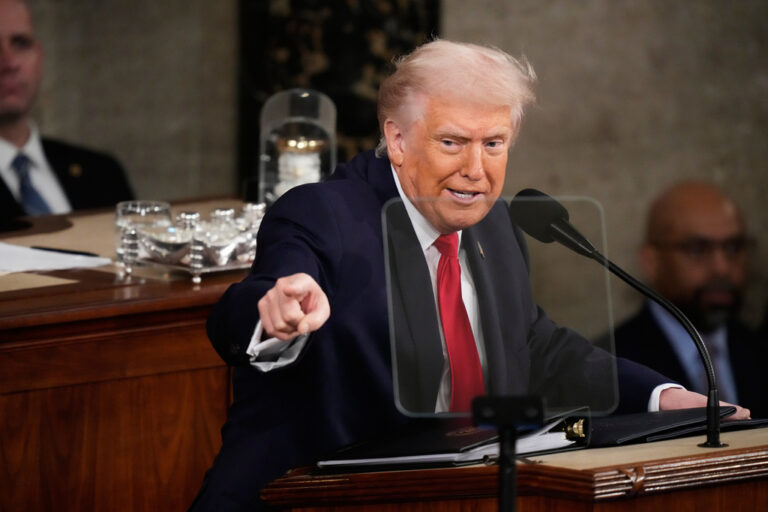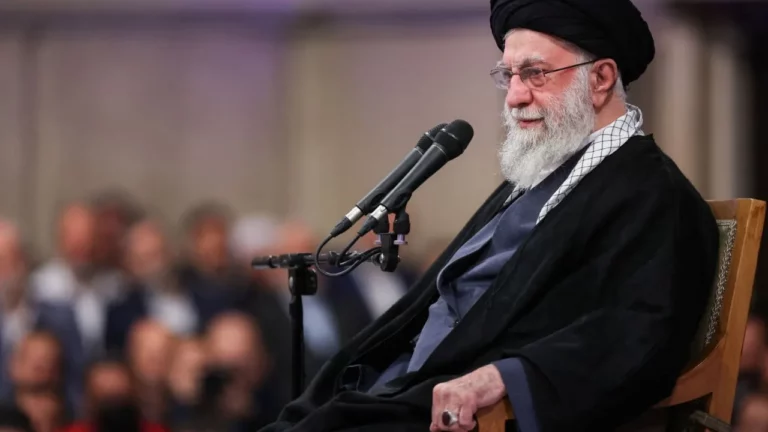 [The following is by Peter Beinart, for the Daily Beast]
[The following is by Peter Beinart, for the Daily Beast]
While the details of the debt-ceiling deal remain fuzzy, this much is clear: Barack Obama may be president, but the Tea Party is now running Washington. How did this happen? Simple: This is what American politics looks like when there’s no left-wing movement and no war.
Let’s start with the first point. Liberals are furious that President Obama agreed to massive spending cuts, and the promise of more, without any increase in revenue. They should be: Given how much the Bush tax cuts have contributed to the deficit (and how little they’ve spurred economic growth), it’s mind-boggling that they’ve apparently escaped this deficit-reduction deal unscathed.
But there’s a reason for that: Since the economy collapsed in 2008, only one grassroots movement has emerged in response, and it’s been a movement of the right. Compare that with what happened during the Depression. In 1933, Franklin Roosevelt assumed the presidency and launched the hodgepodge of domestic programs that historians call the first New Deal. By 1935, however, he was looking warily over his left shoulder at Huey Long, whose “Share our Wealth” movement demanded that incomes be capped at $1 million and every family be guaranteed an income no less than one-third the national average.
At the same time, the Townsend plan to guarantee generous pensions to every elderly American had organizers in every state in the union. To be sure, FDR had vehement opponents on his right, but he was at least as concerned about the populist left, which helps explain why he enacted the more ambitious “second New Deal,” which included Social Security, the massive public jobs program called the Works Progress Administration, and the Wagner Act, which for the first time in American history put Washington on the side of labor unions.
Obama, like FDR, had a reasonably successful first two years: a stimulus package that while too small for the circumstances was still large by historical standards and a health-care bill that while subpar in myriad ways still far exceeded the efforts of other recent Democratic presidents.
And then, unlike FDR, he ran into a grassroots movement of the right. Historians will long debate why the financial collapse of 2008 produced a right-wing populist movement and not a left-wing one. Perhaps it’s because Obama didn’t take on Wall Street, perhaps it’s because with labor unions so weak there’s just not the organizational muscle to create such a movement, perhaps it’s because trust in government is so low that pro-government populism is almost impossible.
Whatever the reason, it was the emergence of the Tea Party as the most powerful grassroots pressure group in America that laid the groundwork for Sunday night’s deal. The fact that polling showed Obama getting the better of the debt-ceiling debate barely mattered. The 2010 elections brought to Congress a group of Republicans theologically committed to cutting government. And they have proved more committed, or perhaps just more reckless, than anyone else in Washington.
But it’s not just the absence of a mass left-wing movement that explains last night’s deal. It’s the end of the war on terror. From 9/11 until George W. Bush left office, the “war on terror” defined the Republican Party. That meant massive increases in defense and homeland security spending, but it also meant increases in domestic spending—such as the 2004 prescription-drug bill—aimed at ensuring that Bush got reelected, so he could perpetuate the war on terror. In that way, “war on terror” politics resembled Cold War politics, in which the right’s desire for guns and the left’s desire for butter usually combined to ensure that all forms of government spending went up.
The Tea Party, by contrast, is a post-war on terror phenomenon. Many of the newly elected Republicans are indifferent, if not hostile, to the wars in Afghanistan and Iraq. They’re happy to cut the defense budget, especially since it makes it easier to persuade Democrats to swallow larger cuts in domestic spending. It’s the reverse of the Cold War dynamic. During the Cold War—especially in the Nixon and Reagan years—conservatives accepted that overall spending would go up in order to ensure that some of that increase went to defense. Today, conservatives accept defense cuts in order to ensure that overall spending goes down.
The good news is that the Tea Party, more than Barack Obama, has now ended the neoconservative dream of an ever-expanding American empire. The bad news is that it has also ended whatever hopes liberals once entertained that roughly 100 years after Theodore Roosevelt and Woodrow Wilson, roughly 75 years after the New Deal and roughly 50 years after the Great Society, we were living in another great age of progressive reform.
Given the era of fiscal scarcity we’re now entering, those neocon and progressive dreams are now likely dead for many years to come. Meanwhile, the Tea Party’s dream of a government reduced to its pre-welfare state size becomes ever real.
Peter Beinart, senior political writer for The Daily Beast, is associate professor of journalism and political science at City University of New York and a senior fellow at the New America Foundation.
(Source: Daily Beast)











10 Responses
I read one paragraph and I see this guy is a full of himself liberal. The FACTS are that the Bush Tax Rates did spur growth. He is in denial by not admitting that the unemployment rate was mostly in the mid to upper FOUR percent when W was president. Dont get me wrong, there were Bush things that aggravated my fellow Conservatives to no end, the main thing being that he was one of those “get along” people so he didnt fight on things such as spending, which he should have.
The writer has fallen hook, line, and sinker for the Obama Doctrine, aka its Bush’s fault. So I ask, WHEN DOES IT BECOMES OBAMA’S FAULT especially since he has done NOTHING to improve it?? I guess according to him, the answer would be “never.”
The country and the politicians have fallen of the “Obama” band wagon big time. They are not charmed by his rhetoric and they are not fooled by his inconceivable plans. Obamacare is a farce too big for anyone to decipher and no one really knows where the next punch in the stomach is going to come from.
His plan to cut medicare is a huge blow to all americans. That is the “biggest chutzpah” any president can have. That is saying to all Americans “we in government are going to continue to take your money in taxes and social security but when you reach the age of retirement we are going to turn our backs on you because “OLD” people don’t count”.
For shame. Older Americans worked and contributed for the right to enjoy and count on their social security payments which was supposed to go up according to the cost of living and not decrease.
I would like to know why YWN has to publicize this Marxist-Leninist manifesto which is full of liberal lies?
According to Paul Krugman, professor of Economics and International Affairs at the Woodrow Wilson School of Public and International Affairs at Princeton University, Centenary Professor at the London School of Economics, and 2008 winner of the Nobel Memorial Prize in Economics…writing an op-ed piece in this morning’s NYT:
“We currently have a deeply depressed economy. We will almost certainly continue to have a depressed economy all through next year. And we will probably have a depressed economy through 2013 as well, if not beyond.
“The worst thing you can do in these circumstances is slash government spending, since that will depress the economy even further. Pay no attention to those who invoke the confidence fairy, claiming that tough action on the budget will reassure businesses and consumers, leading them to spend more. It doesn’t work that way, a fact confirmed by many studies of the historical record.
“Indeed, slashing spending while the economy is depressed won’t even help the budget situation much, and might well make it worse. On one side, interest rates on federal borrowing are currently very low, so spending cuts now will do little to reduce future interest costs. On the other side, making the economy weaker now will also hurt its long-run prospects, which will in turn reduce future revenue.
“So those demanding spending cuts now are like medieval doctors who treated the sick by bleeding them, and thereby made them even sicker.”
sickofidiots…It appears you know nothing of the distinctions between and among Marxism, Leninism and
Liberalism…and it would appear that you are far from being sick of idiots!
aries2756 writes: “The country and the politicians have fallen of the “Obama” band wagon big time.”
How about the 87% of the Jews (aka useful idiots) who voted for him? Have they fallen off O’s bandwagon? I am afraid O. can still count on them.
Are you sure the “Tea party” won?
The budget cuts that take place during 2011-2012 are minimal and will hardly make a dent in the deficit. The “automatic” mechanisms may tilt towards crippling national defense (though many “tea partiers” are neo-isolationists so they won’t be too upset). There’s nothing to stop the big spending Democrats from using the Treasury to fund their constituencies leading into the election, and nothing that binds anyone when the next Congress takes office in January 2013.
I must say that I have no patience to read this op-ed. So all I can comment is on the title. That being: This new healthcare system will raise taxes and that if the Bush tax cut’s were to remain new revenue would be needed to be raised. That’s a large tax increase, and in effect a lose for the tea party.
I wont say it makes them loser’s, but don’t seem to be winners.
Great article. The tea party is ruining America.
I stoped reading after the second paragraph, so twisted that its sickening.